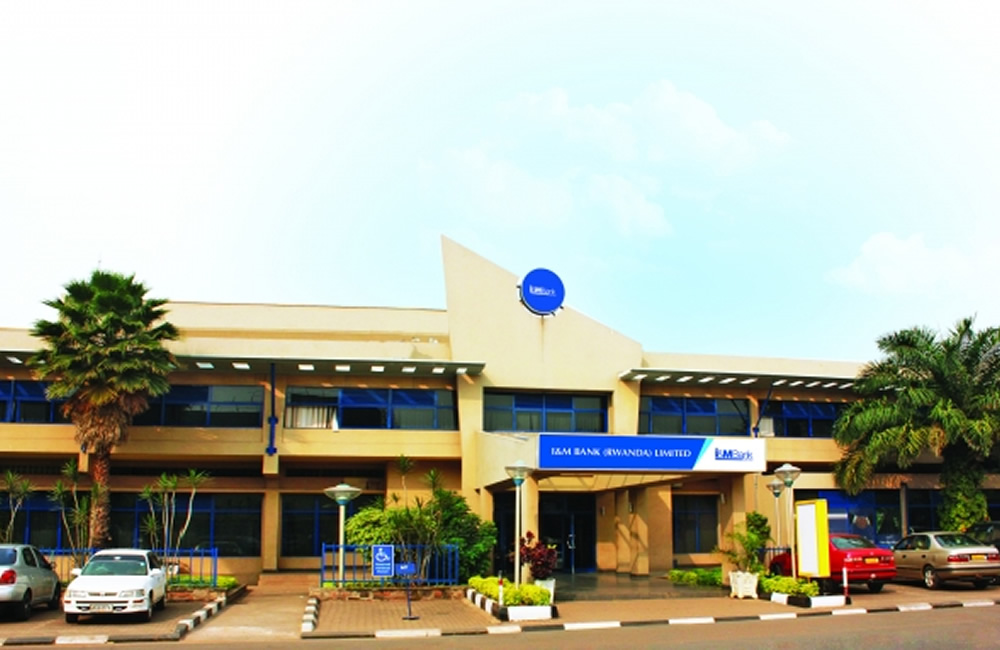
Business Development Centers to Help in Access to Credit
The Business Development Fund (BDF) is planning to open all its Business Development Centers (BDCs) before the end of March, its CEO Innocent Bulindi has told The Rwanda Focus.
17 BDCs are already operational, while the refurbishment of 13 others is in the final stages..
“BDCs play a significant role in offering a lot of business advice to small business operators and working with the local authorities towards the promotion of business development and entrepreneurship,” Bulindi said.
The BDCs will also act as branches of BDF, which has so far been working with business development advisers and entrepreneurship development advisers in the districts, mainly to help entrepreneurs to acquire loans.
He said that BDF’s head office provides financial services to small businesses like credit guarantees for commercial banks, whereas BDCs work with Savings and Credit Cooperatives (SACCOs) at the district level to provide loans to business operators.
“One of the key challenges that small businesses face is the cumbersome loan application process, so we help them in fine-tuning their business plans before they go to the banks.”
Bulindi explained that small business operators who seek for financial support can submit their proposals at BDCs, which help them in appraising their business plans and then BDCs give their recommendations to BDF for approval.
“Access to finance is a broad word, our responsibility as BDF is to address various challenges of small businesses like failing to fulfill the collateral requirements from the banks, because if you want to borrow from a bank, there are certain conditions,” Bulindi said.
He said that there are over 10,000 people who currently using BDCs.
When it comes to getting access to loans, one of the main obstacles for small businesses has always been the condition of collateral which acts as a security for the bank, yet many SMEs do not have any substantial assets. That is where BDF comes in, as it can provide part of the guarantee required to obtain a bank loan.
According to Bulindi, high interest rates constitute another obstacle for small businesses, and here too BDF gives grants to pay a portion of their loans in the form of an investment.
Investing in agriculture
Before anything else, however, a loan applicant requires a good dossier to convince a bank of his capacity to pay back, and here too BDF and the BDCs offer assistance.
“One of the key challenges that small businesses face is the cumbersome loan application process, so we help them in fine-tuning their business plans before they go to the banks,” Bulindi said.
Another aspect of BDF’s activities is to encourage banks to extend credit to sectors they use to avoid, such as agriculture, which is seen as a high-risk sector since a lot depends on climatic conditions which can be unpredictable. Therefore, BDF has a special program for projects in agriculture where it pays part of the requested loan.
The Fund also provides loans to SACCOs to enable them to give out more loans and to improve their liquidity.
Not free of charge
Bulundi says one of the challenges BDF still faces is that people perceive them as an instrument of the government that provides assistance and money free of charge, yet they are running as an enterprise.
“Even if we offer guarantees to the businesses which apply for loans in banks, we need to look at it in a holistic way by bringing on board the business players, the government, the private sector and banks in order to help businesses to get loans at affordable interest rates,” Bulindi pointed out.
He added that the first thing is to help business operators seeking for financial support to always have viable business plans, as well as sufficient financial knowledge.
“It is imperative for the business operators to always have a viable business proposition and to have an efficient business model to make you succeed in your activities,” Bulindi said.
Read More
RSSB Voted Best Service Provider of 2014
The Rwanda Social Security Board (RSSB) has been voted the best service provider of 2014.
The awarding ceremony of the best service providers held on Thursday follows a survey organized by the ServiceMag from January 15 to February 6, during which the public could vote in different categories.
The categories are air transport, banking services, insurance, healthcare/ hospital, hotel services, restaurants, internet service providers, and telephone service providers.
RSSB not only emerged the overall winner, but was also named the best service provider of the year in the insurance service.
The Minister of Trade and Industry, Francois Kanimba, said promoting service and good customer care will drive economic growth and overall development of the country.
“Our vision is to have a knowledge-based economy by improving services to attain sustainable development. We want to compete regionally and internationally in service delivery and we will continue supporting these initiatives for the development of our country,” minister said.
It was the third time ServiceMag organized the best service provider survey.
Best service provider winners:
- Overall winner: Rwanda Social Security Board (RSSB)
- Media: Radio Rwanda
- Government agency: Rwanda Revenue Authority
- Health care: CHUK
- Restaurant: Fantastic restaurant
- Hotel: Serena Hotels
- Internet provider: Tigo Rwanda
- Telephone services: Tigo Rwanda
- Insurance: RSSB
- Banking: Bank of Kigali
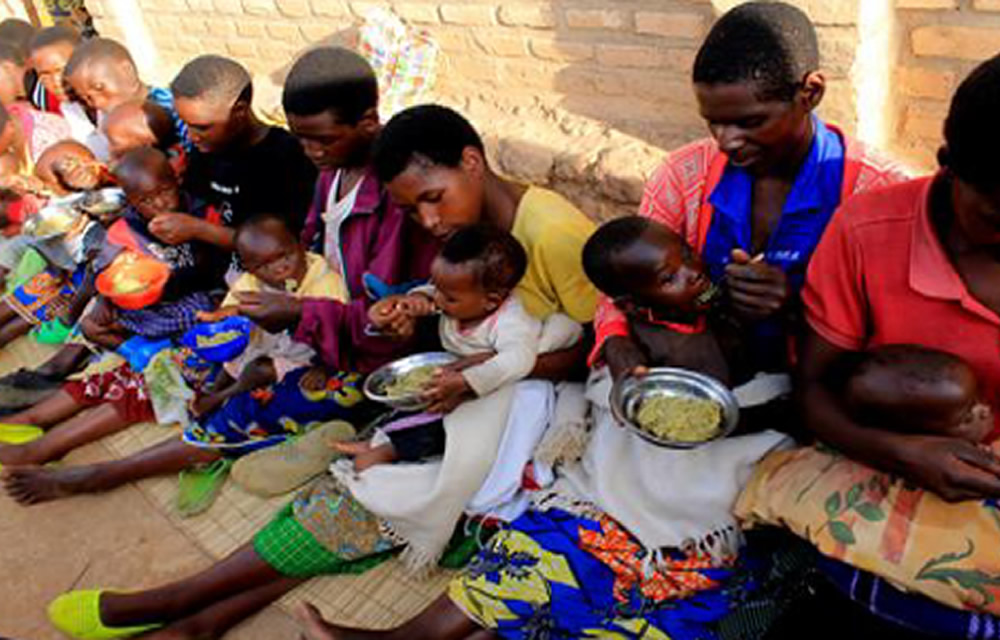
Nyamagabe Community Starts Campaign Against Malnutrition
Nyamagabe is one of the districts still most affected by poverty due to acidic soils that have affected crop production which in turn is the main cause of malnutrition.
As a way of eradicating malnutrition, many households in Nyamagabe benefited from the One-Cow-per-Poor-Family program, provided by the government, while World Vision also provided cows to households in the area.
As a way of giving back to their community, residents in Nyamagabe set up the cooperative Our Milk in 2012 with 24 members, and started a campaign to fight malnutrition among children. The cooperative, located in Tale sector, also aimed at creating a source of income for its members.
Letitia Nyiranzabandora, 26, said they were given cows, all of which gave birth, but they did not have market for their milk and there was no way of eradicating malnutrition. But after the cooperative set up a milk center, with the support of World Vision, it offered a market for more than 100 suppliers. The milk, after being tested and treated at the center, is carried to markets in little red trucks
The Milk Collection Center was linked to the markets in Kigeme refugee camp, Gasarenda, Rusizi, Nyamagabe town and Bukavu that has enabled the development of milk industry in Nyamabage.
However, some of the mils is set apart for malnourished children.
“We locate malnourished children and those at risk in the area, and they are brought to the center every day to drink milk as a way of fighting malnutrition in the area; if they improve and we send them off and bring others,” Nyiranzabandora said.
‘Near death’
Among other children that survived malnutrition is Moses Muhire, 10 years old.
“When Moses arrived one year ago, he was near death, he was critical,” Nyiranzabandora said. “His eyes were pale, his hair yellow and soft, his cheeks were swollen.”
milk (1)
Moses Muhire with one of the members of the Our Milk cooperative. (courtesy photo)
Moses weighed less than 15 kilogram. “I had never seen a child like that,” she said, adding that Moses was very weak, had no appetite and could not play so he did not interact with other children.
“Today he is alive and healthy; he runs and has a passion for life. The first time I saw him, I didn’t have hope that he would have a future, but I have so much hope now,” Nyiranzabandora said.
Moses said that, because of the milk program, he has gained energy and weight to 20 kg in one year.
“I was at risk of hunger. I suffered from stomach pain day and night due to starvation, and lost a lot of weight. Sometimes, children in my village made fun of me, saying I had AIDS,” Moses said confidently and with a clear loud voice.
Commercial villages
“We were extremely happy to receive cows. We thought selling off surplus milk would greatly improve our income,” said Francis Habitegeka, one of the farmers in the area. “When the cows gave birth, we failed to find market for the milk produced. The remoteness of our village made it impossible to access market for our milk. Life changed when the milk collection center opened its doors.”
However, the milk suppliers are encouraged to put their families first and ensure they have all the milk they need before they sell what remains.
The milk center was created in the context of World Vision Rwanda’s model that builds on community empowerment through investing in Village Savings and Loan Associations (VSLAs) and the Commercial Villages Model.
According George Gitau, the World Vision Rwanda National Director, the empowerment model aims at encouraging and developing the skills of household members for self-sufficiency, with a focus on eliminating the future need for aid.
“We work with the communities until they graduate from subsistence to commercialized market-led agricultural production units; we teach them how to catch a fish, instead of constantly giving them a fish,” he said.
Read More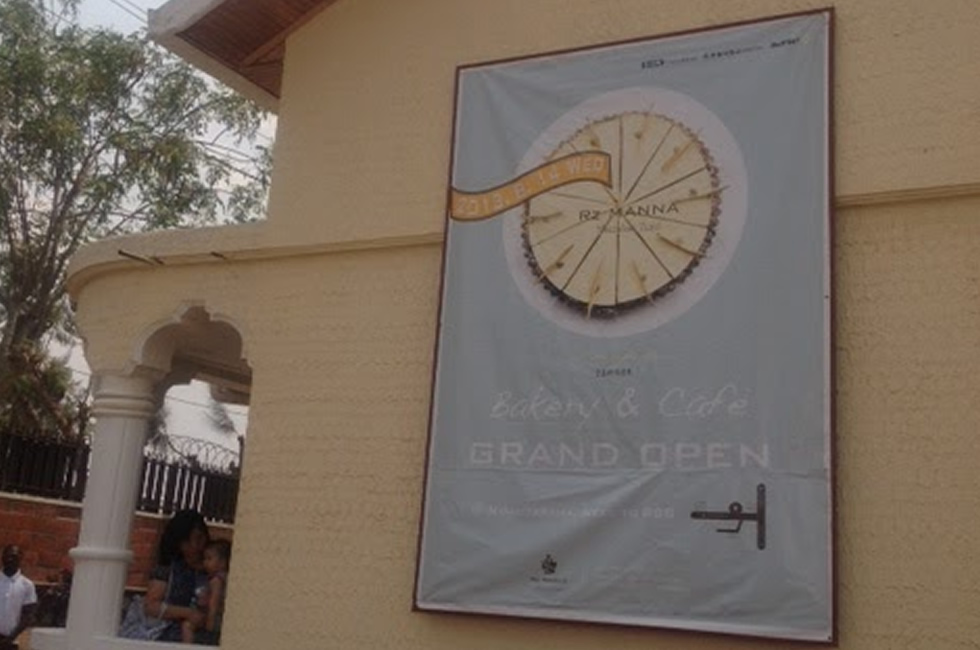
A Splendid Experience at the Rz Manna Café
Over the weekend an old friend introduced me to a place I didn’t know, the Rz Manna Café in Nyarutarama, which proved to be a pleasant experience.
When I entered the comfy Korean café, a waitress welcomed me, showed me to a table and brought the menu. Since my friend hadn’t arrived yet, I decided to order just some apple juice, which already gave me taste of things to come since it was pure juice, with no water added. They also make mango juice, avocado, passion fruit and pineapple juice.
As I waited for my friend, I was told that there was 4G-LTE Internet access, and I immediately used this fast connection to browse a bit on my phone to kill the time.
Later, I took a little stroll around the café to get to know it better. Both expatriates and Rwandans were enjoying their meal in the plush premises with a beautiful decor on the walls. I happened to run into the managing director of the cafe, Jeong Saesaem, and during a little chat she explained that Rz Manna is not just a café, but a social enterprise with the objective of creating employment for local people.
“We opened in August 2013, and our primary motive was to reduce poverty among the local people by creating employment. We have 30 workers who benefit from training at the café, and we also hope to groom a Rwandan managing director in a few years’ time,” Jeong said.
She also explained that Rz Manna café is a joint venture between Koica (the Korean International Co-operation Agency) and Handong Glove University.
By the time our chat was over, my friend had arrived, so we sat and ordered breakfast which consisted of waffles, espresso coffee (they also have mocha and latte) and mocha cake. The waiters and waitresses were brisk and cordial, so we did not wait long.
Jean Baptiste Tuyisabe, the master barrister who came to ask whether we were enjoying our meal, said that when the management at Rz Manna wants to assign an employee to a new task, they first arrange training so that the employee gets the adequate skills for the job.
“Before I got employed here, I was doing temporary jobs with Bralirwa. I was lucky to land a job at Rz Manna when they were just opening, and I have learnt a lot of things from them. I’m now able to make good coffee, cakes, stick pie, baguettes, and more. Some international restaurant reviewers like Willing-Time wrote an article praising my skills as one of the best barristers in Rwanda, and this helped me a lot, as the management promoted me to master barrister and head of service at the café,” Tuyisabe said proudly.
He added that other workers have benefitted from classes in baking and cake-decoration to hone their skills. As a result, Rz Manna offers mocha cake, which has a taste of coffee, butter-dom cake with vanilla, and Black Forest cake made with chocolate. They also do pastries and sandwiches, and among the drinks they also have smoothies.
Having finished our delicious breakfast, we fully agreed with the restaurant reviewers who rank Rz Manna among the top coffee parlours in Rwanda. Their wonderful food is certainly worth a penny.
Read More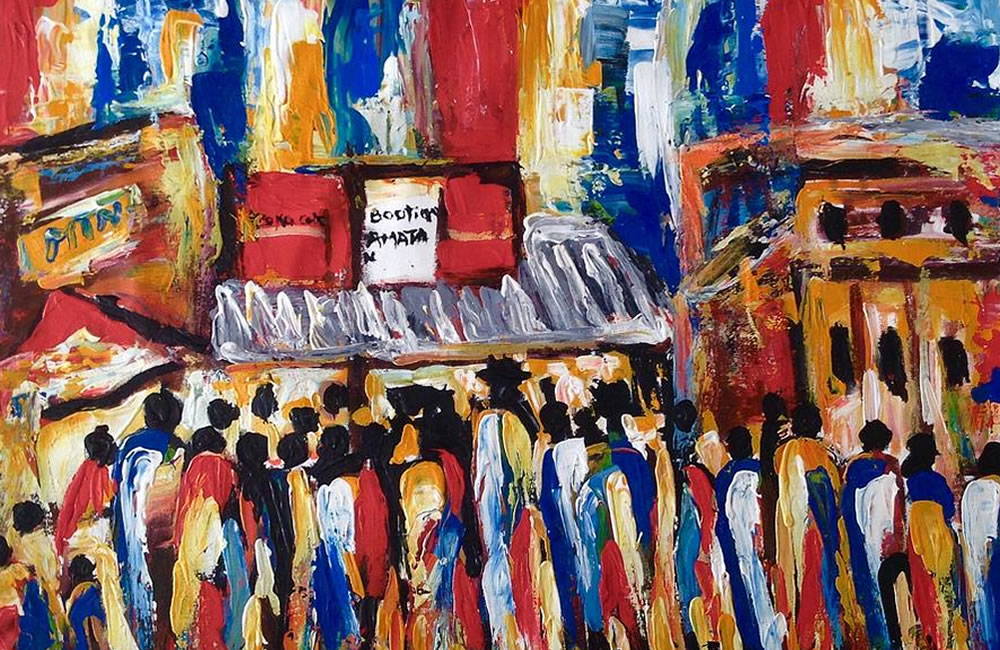
‘My Artwork Comes from Inspiration and Admiration of Other People’
“Survival is all about being creative especially in our field and the only way to lead others is through coming up with unique products,” says Tony Cyizanye.
Born in Burundi in 1987, Cyizanye moved to Rwanda with his parents in 1995 with very many ambitions just like any other person, of either becoming a medical doctor or an engineer.
However, his dreams never came through as he dropped out of school on completion of primary school education after losing his parents.
Tony Cyizanye (3)“Life was not all that easy for me. I tried to make ends meet so that I could pay for my secondary education, but it was very hard since I had no job and lived with my little brother and sister,” he said.
He adds that he had lost hope because whenever he could go to ask for the job, the first question would always be; “do you have your qualifications and CV?” Tired of this, he came up with an idea to find work in a gallery.
In his soft voice, Cyizanye narrates his journey from the age of 15, saying it is such a bad life experience he will always live to remember.
One day he went to Ivuka arts center in Kacyiru without any experience but one of his friends, Colline Sekajugo welcomed him and started training.
“After sometime, I remembered that my uncle was an artiste, and I used to see him working although I was a small boy. That inspired me,” explains Cyizanye.
Tony Cyizanye (2)He says, after gaining enough experience at Ivuka arts, he decided to start his own art gallery in Nyarutarama and his love for what he did gave every piece of his work an exceptional touch. This is why his works attract attention even internationally.
As he displays his art work at Yego Art Center opposite the MTN headquarters, he targets clients of all walks of life but most especially the foreigners in the morning who occasionally turn up for various activities.
Cyizanye says his artwork comes from inspiration and admiration of the prominent people in the industry. His cheapest art products cost USD200 while the most expensive depend on his customers demand basing on the order placed.
With a smile on his face, Chizanye says, “at first, I’d thought that I would be miserable for the rest of my life, but things have completely changed. I am discovering my preciousness each other day,” “I am a happy man today, independent and able to pay rent and support some of my relatives.
Cyizanye has participated in various competitions and showcased his art in exhibitions that also include the 2010 FESPAD, USA and Europe among others. He has represented Rwanda in the USA in an event held in Boston 2014, Chicago and also made an art exhibition with Koreans.
Cyizanye 28, runs his own art and jewelry shop and also employs 11 members of staff. He has not forgotten his humble beginning and recognizes that giving back to society is an obligation. That is why he chose to equip 10 young people with art skills and employ them. He has trained over 30 students and he is working with 10 artistes who joined him.
Read More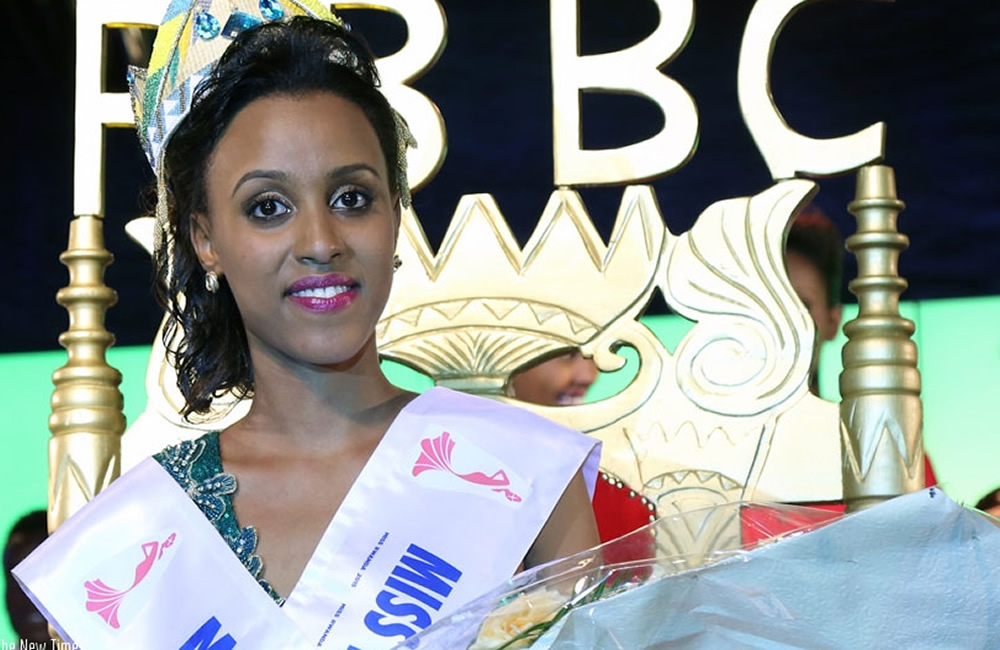
Doriane Kundwa is Miss Rwanda 2015
Doriane Kundwa, a 19-year-old student from the Northern Province, has been elected Miss Rwanda 2015 on Saturday, beating 14 other contestants.
Kundwa, who also won the Miss Popularity title, was followed by Kigali City beauty queen Vanessa Raissa Uwase and Lynca Akacu Uwse from the Eastern Province.
Fiona Ntaringwa and Balbine Mutoni completed the top-5 at the pageant, which seemed to be the best organized and attended so far.
Darlène Gasana was crowned Miss Heritage while Sabrina Ihozo Kalisa became Miss Photogenic and Joannah Bagwire Miss Congeniality.
Early on Sunday morning, as she was airlifted to Nyungwe Forest Lodge, Kundwa thanked Rwandans for their support.
“Good morning Rwanda. Still can’t find a suitable word to express my feelings… thank you so much I love you all,” she tweeted.
“I cannot express how grateful I am to have each and everyone of you in my life thank you so so much for all of your love and support.”
As Miss Rwanda 2015, Kundwa was given a Suzuki Swift and will receive a monthly stipend of $1000 during her reign. She also became brand ambassador for telecommunications company Airtel.
She will also engage in different activities that will entail extensive travel around Rwanda and the world as an ambassador for the country, carry out charity work and act as a role model for young women in Rwanda.
Read More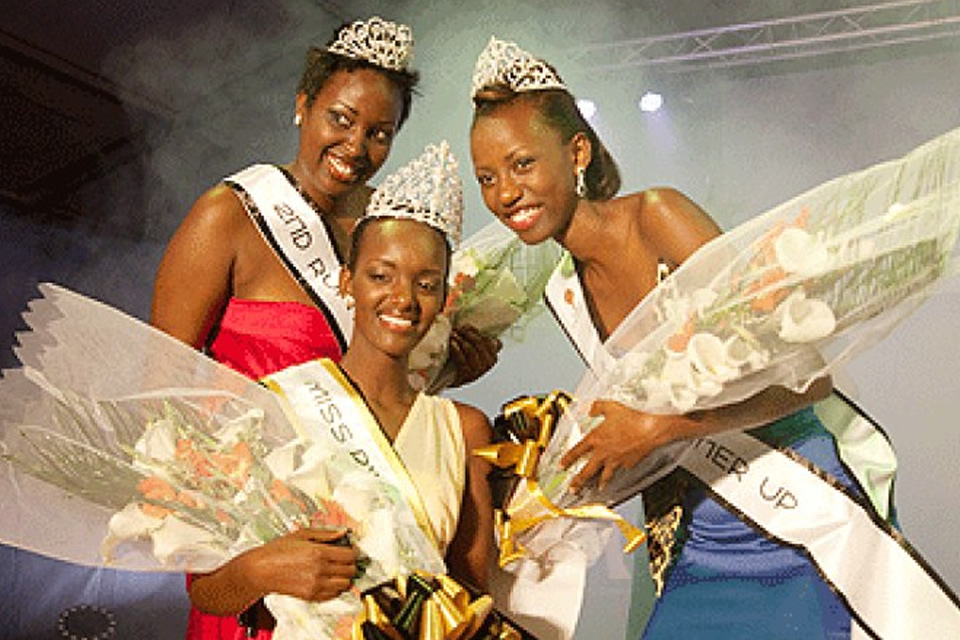
What is Wrong with Miss Rwanda Contest?
Last year, during the Miss Rwanda competitions, my sister woke me up and showed me a video of one of the contestants answering a question she had been asked by one of the judges. This contestant’s answer caught fire on social media because of the extremely broken French in which she (barely) expressed herself. I will just go ahead and admit that I laughed uncontrollably and even shared the video with a couple other friends whom I knew would enjoy a good dose of linguistic humor.
This year, as we get ready for another shot at electing the ONE worthy girl who will represent us Rwandans, not only nationally but also internationally, no wonder social media is already swarming with criticism around this competition.
There are many players at stake here. Contestants, institutions and organizers are at the top of my list. Since my cell phone was about to burst with twitter notification around the question of mockery of the contestants, it is only fit that I address this point before anything else.
I disapprove of any remarks that seek to hurt or attack the contestants on a personal level. This means anything from calling them names, to adding on to what they actually said, or even taking out of context some of the things they say.
Language is one hot topic when it comes to this issue, and there are a couple of things that we need to understand about this. First of all, if you are able to detect all of their mistakes in French or English, it is important that you understand the privilege that allows you to be able to express yourself in foreign languages as well as you do. On that note, we all know that we were not all exposed to the same resources, and therefore cannot be held to the same standards when it comes to using those languages.
Secondly, there is the lack of formulating a sound argument or making an informed and clear statement. This also lies, partly, in the limitations in languages. However, there are many people who went to supposedly some of the best schools who are not able to express themselves eloquently. Therefore, this could just be the lack of this specific skill.
What I think is the issue at the core is that the institutions and people in charge of Miss Rwanda elections do not know what they are looking for, or at least do not understand what Miss Rwanda’s role would be. In my opinion, last year, this process died at the recruiting stage. This year does not look promising either considering what we have already seen.
I fully recognize and admire the courage of the contestants, but it goes without saying that they might not have been advised as to what the position requires. Unfortunately, not everyone has critical people who will challenge them into recognizing their strengths and their weaknesses. They might truly believe that they are beautiful and brainy, (which in my opinion, should be the requirements for Miss Rwanda) but it is the responsibility of the recruiters to set standards and determine the minimum necessary skills for a contestant. For some of these contestants to have even endured the ridicule of the public, is, for the most part, the organizer’s fault. There are many qualified ladies who could assume this position, but there is very little incentive for these individuals to participate due to the poor organizing and previous outcomes of this competition. There is no specified role for Miss Rwanda and their responsibilities are almost nonexistent. If these things exist, the general public is unaware of them, and therefore have very little understanding of this program. No wonder this would be demoralizing for any intelligent person, who also happens to be beautiful.
I couldn’t possibly not address that our education system needs a wake up call (actually a reminder of all of the other wake up calls.) It is scary to me that someone is able to finish and graduate from 12 to 15 years of school, after studying in one language, eight hours a day, five days a week, and still not be able to formulate a sentence in that language.
So here are my thoughts in a more concise form:
- Personal attacks toward contestants are hurtful and unnecessary;
- Languages are a privilege; so making fun of those who do not have that privilege is immature;
- Not everyone is lucky to be told the truth about their limitations and areas of growth and betterment;
- Our education system has horribly failed if someone can go to school and study in one language for 12 years and still not be able to formulate a correct sentence in that language;
- The organizing team has no sense of what or who Miss Rwanda should be or what she should represent.
On that note, here is what I think is important that we do. Laughing at the contestants will for sure raise awareness about the deeper underlying issues with this contest, but not having any conversation beyond that is just as ridiculous. Without any constructive criticism about how the responsible institutions and organizers can make it better, these will only be shallow useless venting sessions that will yield no positive outcome. We need to question the reasons why we are electing Miss Rwanda, what she represents and how she will represent us all. After figuring that out, we can then proceed to setting standards and opening up the contest to those who qualify. After they have been elected, we need to see concrete ways in which Miss Rwanda is benefiting the advancement of our society and participating to our development. We need something more substantial than the fact that a girl with the perfect height and weight will be getting a car and a year worth subscription to free SULFO products.
Read More25 Selected to Compete for Miss Rwanda finals
We now know who will be competing at the pre-selection of the finalists of Miss Rwanda 2015. Organisers and judges have toured Rwandas four provinces and the City of Kigali over the last few weeks to select pre-finalists.
They are all 25 and will be lining up at Serena Hotel on Wednesday, 7 February 2015.
Here is a full list:
Northern Province
- Florence Asifiwe
- Dorine Kundwa
- Yvette RUbazinda
- Colomber Uwase
- Amanda Melissa Uwase
Western Province
- Venessa Mogazi
- Flora Mutoniwase
- Sabrina Ihozo Kalisi
- Darlene Gasana
- Colombe Umutoniwase
Southern Province
- Joannah Keza Bagwire
- Belinda Mukunde
- Divine Ingabire
- Joelle Ruzigana Giriwanyu
- Angel Fortunate
Eastern Province
- Linker Akacu
- Balbine Mutoni
- Nadette Umuhoza
- Fiona Mutoni Naringwa
- Ariane Uwimana
City of Kigali
- Belyse Hitayezu
- Jane Mutoni
- Vanessa Raissa Uwase
- Negritta Rudasingwa Umuhoza
- Annick Lachance Nyiranganzo
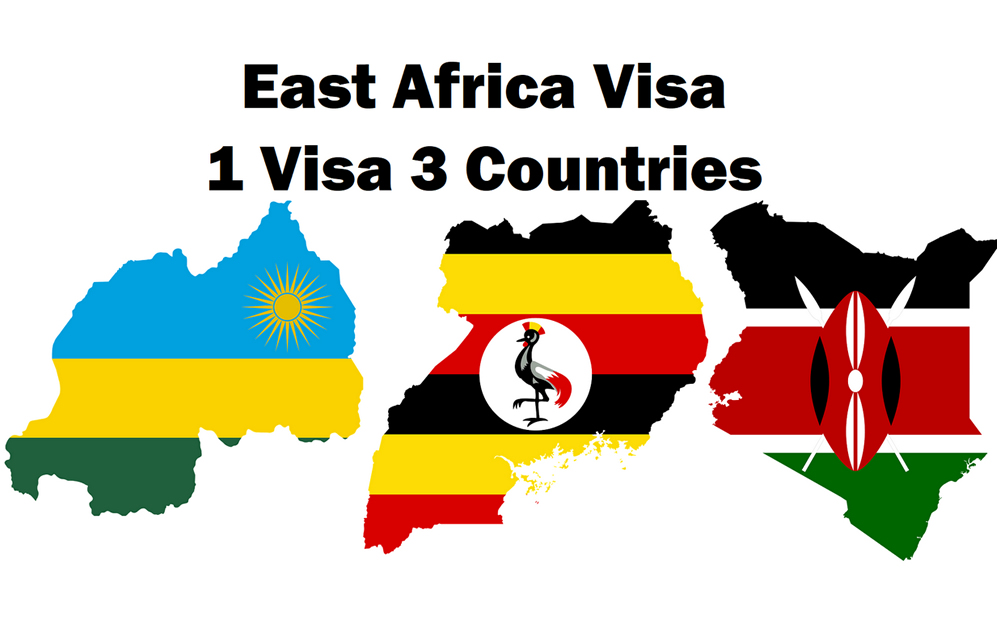
East Africa Single Visa: One Step In The Right Direction
East Africa, a region recognized as a successful global location for mobile payments and a thriving online space, is embracing technology advancement as part of its growth plan for diverse sectors. The newly recently launched East Africa Single Visa is intended to scale up tourist arrivals in EAC member states; Kenya, Uganda, and Rwanda. This multinational-travel certificate which costs $90 will grant tourists a 90-day validity period with no room for extension.
Although termed as ‘long-haul destination’, one cannot stop wondering why, with massive cultural and natural resources, Africa continues to lag behind in recorded tourist visits. According to a report by the World Travel and Tourism Council, of the one Billion tourists who travelled in 2012, only 50 million were destined for Africa, where East Africa only managed to scoop 5 million (1 percent) of the bound-for-Africa travelers. “We need to re-package ourselves” quipped Waturi Matu-Coordinator for East African Tourism Platform in an interview with Jovago.com, a leading online hotel booking platform in Africa. Ms. Matu explains that this revamping process would start with the leadership, down to stakeholders and the African Media, “Africa has suffered blanket misconceptions for a long time. We are yet to carry ourselves from the gripping grief of the term ‘dark continent’. Africa needs to tell her own story, and let the world know that beyond the crisis (that exist in every other nation) there exists vast stretches of unique culture, wildlife, flora and fauna, business opportunities and untapped resources.”
Having spearheaded the campaigns that saw three of EAC member states sign the Single Tourist Visa during the 2013 World Travel Market, Waturi notes that opening borders and removing entry point hurdles is a first step in catapulting both international and intra-regional tourism. Although Tanzania had earlier objected to the Agreement citing security reasons, they have since expressed interest which will result in either of these two scenarios as explained by Waturi: They request to be included in the current Northern Corridor arrangement (The cost and formula for revenue sharing would have to be revised to reflect the new entrant) and the interest is brought to the attention of the EAC Secretariat where all EAC countries meet and agree on an implementation framework, determine cost and formula for revenue sharing and sign agreement. Option B would be most appropriate and a true reflection of regional integration. Burundi, she says will be joining at a later date, “we must not rush member states as each country is at different levels, both in infrastructure and technology.”
Apart from opening the borders for regional tourism, the agreement also allows immigration authorities to recognize National Identification Documents as passports for the EA Community, which fairly levels the playground for both tourists and tour operators.
Read MoreRwanda Ponders Opening Embassy in Zambia
The Rwandan government plans to open up an embassy and establish an airline in Zambia, the Ministry of Foreign Affairs permanent secretary George Zulu has said.
Mr Zulu said in an interview yesterday that Rwanda has expressed interest to strengthen its presence in Zambia by setting up an airline and a diplomatic mission. He added that Rwanda is yet to make its plans official by communicating with the Zambian government.
We [Ministry of Foreign Affairs] have been encouraging the Rwandan government to hold talks with the Ministry of Transport, Works, Supply and Communications so that they can set up an airline here.
Trade between the two countries will improve once plans by the Rwandan government to set up an embassy and airline come to fruition:
We are encouraging them to come because there will be an increased trade between the two countries and it will increase bilateral agreements.
Zambia is represented in Rwanda by a non-resident ambassador Judith Kapijimpanga who is based in Tanzania.
The country hosts thousands of Rwandan refugees, many of whom have opted to stay despite the end of the war in that country.
